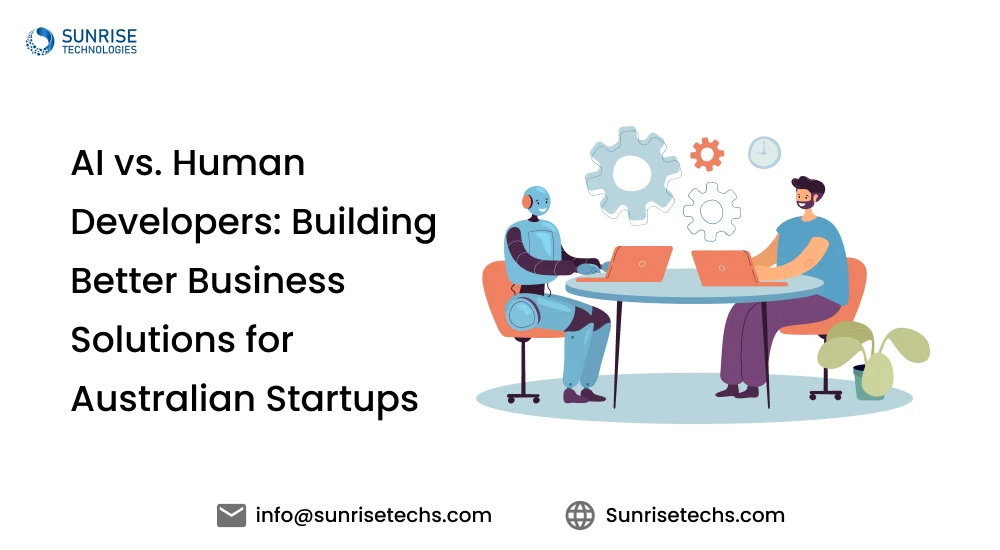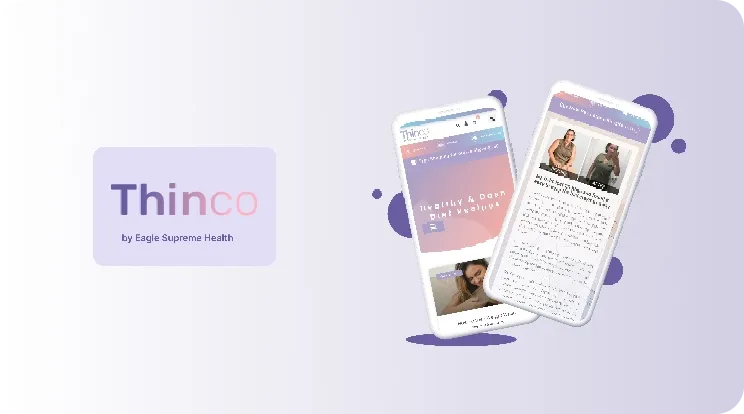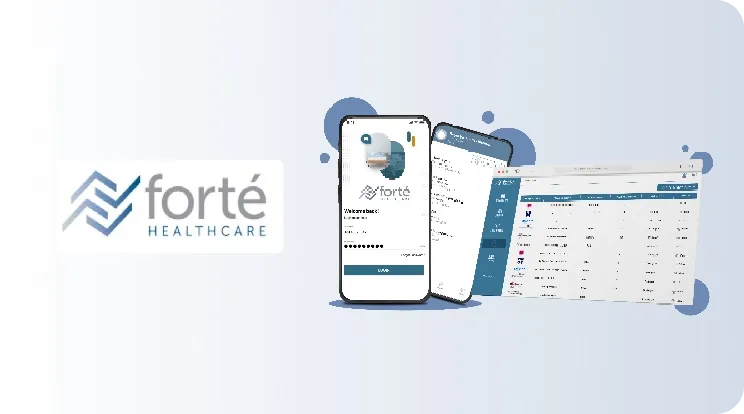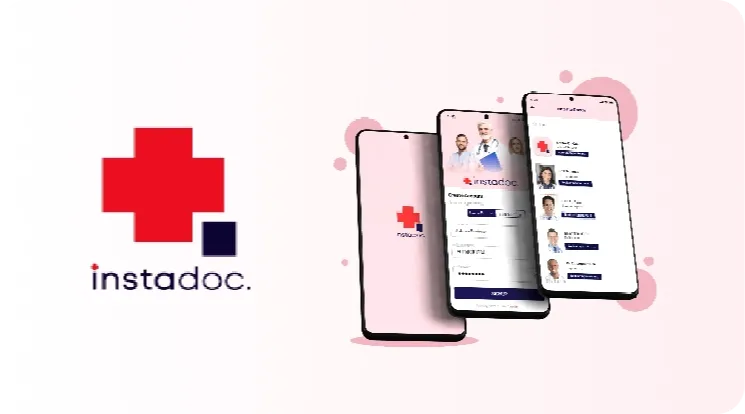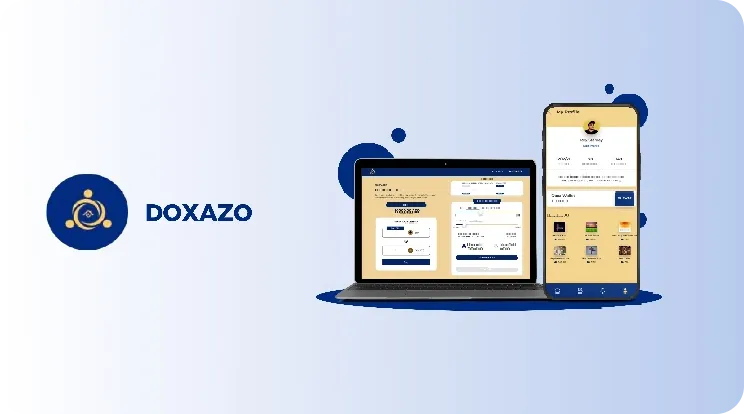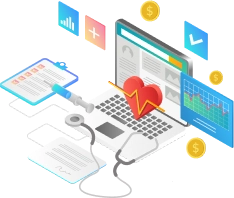
Cost to Develop Clinic Management Software for Small Clinics and General Practice
Mar 23, 2025
In today’s fast-paced healthcare industry, small clinics and general practices face the challenge of streamlining their operations while providing high-quality patient care. One effective solution to this challenge is the implementation of clinic management software. However, the cost of developing such software can be a significant concern for many practices. In this blog post, we will explore the various factors that influence the cost of developing clinic management software specifically tailored for small clinics and general practices.
Clinic management software plays a crucial role in optimizing workflow, improving patient experience, and enhancing overall efficiency. From scheduling appointments and managing patient records to billing and reporting, these systems offer a comprehensive solution to the unique challenges faced by small clinics and general practices. As technology continues to advance, the demand for customized and cost-effective clinic management software has grown exponentially.
Understanding the factors that contribute to the development cost is essential for practices looking to invest in such software. By considering aspects such as software complexity, features, and scalability, practices can make informed decisions and allocate their resources effectively. In the following sections, we will delve deeper into these factors and provide insights into the cost considerations for developing clinic management software tailored to the needs of small clinics and general practices.
Get a detailed breakdown—from planning to deployment—to budget with confidence.
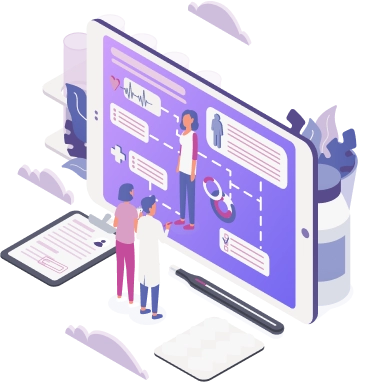
What is Clinical Management Software and How it helps Small Clinics?
Clinical management software is a tool that helps small clinics run smoothly. It makes it easier for doctors and nurses to do their jobs. This software keeps track of all the information about patients, like their names, phone numbers, and medical history. It also helps with making appointments and sending bills.
One of the best things about clinical management software is that it saves time. Instead of writing everything down on paper, the information is stored in the computer. This makes it faster to find what you need. The software also sends reminders to patients about their appointments, so they don’t forget.
This software also helps small clinics by improving organization. Everything is in one place, so it’s easier to keep track of. The software can also create reports that show how the clinic is doing. This helps the doctors and nurses make better decisions about patient care
Overall, clinical management software is a very useful tool for small clinics. It makes the clinic run more smoothly and helps the staff focus on taking care of patients. With this software, small clinics can provide better service and save time and money.
Features of Clinical Management Software
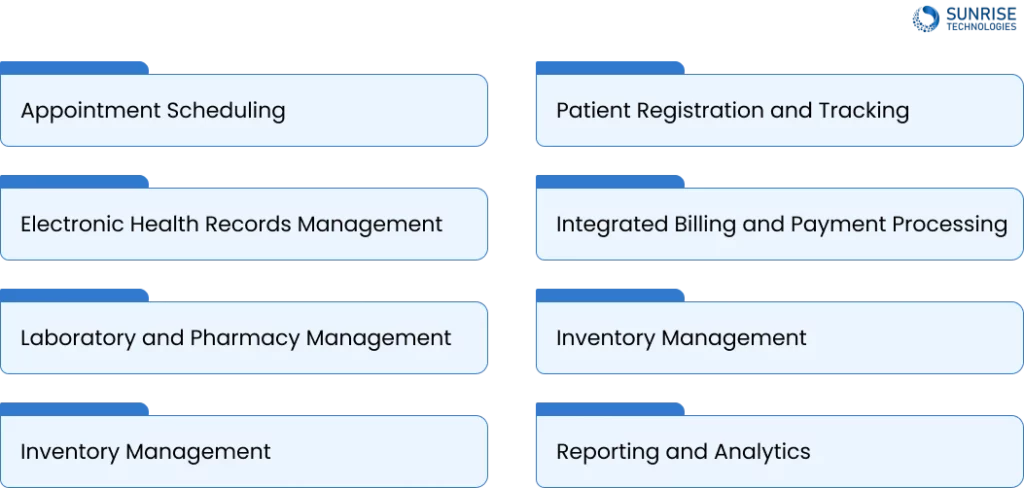
- Appointment Scheduling: Clinical management software revolutionizes appointment scheduling by providing a user-friendly platform for clinics to efficiently book and manage patient visits. This feature helps reduce wait times, minimize scheduling conflicts, and enhance overall patient satisfaction through streamlined appointment processes.
- Patient Registration and Tracking: Simplify patient check-ins and enhance data accuracy with robust patient registration and tracking capabilities. Clinical management software enables clinics to efficiently manage patient information, track medical histories, and streamline registration processes, ultimately improving patient care and operational efficiency.
- Electronic Health Records Management Securely store and manage electronic health records within the software, ensuring easy access to critical patient information while promoting data accuracy and facilitating seamless care coordination among healthcare providers. This feature enhances patient safety, improves treatment outcomes, and supports efficient healthcare delivery.
- Integrated Billing and Payment Processing: Streamline financial transactions and ensure timely payments with integrated billing and payment processing features. Clinical management software simplifies billing procedures, reduces errors, and enhances revenue cycle management, enabling clinics to optimize financial operations and maintain financial health.
- Laboratory and Pharmacy Management: Efficiently manage laboratory tests and prescriptions within the software, enabling clinics to track and monitor patient diagnostics and medication needs seamlessly. This feature enhances clinical workflows, improves treatment accuracy, and ensures effective management of diagnostic and pharmaceutical services for enhanced patient care.
- Inventory Management: Optimize inventory levels, reduce waste, and ensure efficient supply chain management with comprehensive inventory management features. Clinical management software enables clinics to track and manage supplies and medications effectively, ensuring essential items are always available for patient care while minimizing costs and streamlining inventory processes.
- Reporting and Analytics: Gain valuable insights into clinic performance, patient trends, and operational efficiency with robust reporting and analytics tools. Clinical management software empowers clinics to generate comprehensive reports, analyze key performance indicators, and make data-driven decisions to enhance patient care quality, optimize workflows, and drive continuous improvement in clinic operations.
Factors Affecting App Development Costs

App Complexity:
The complexity of an app, including its features and functionalities, significantly impacts development costs. More complex apps with advanced features require more time and resources to build, leading to higher development costs. Simple apps with basic features are generally less expensive to develop compared to complex apps with multiple integrations, advanced user interfaces, and real-time data processing capabilities.
The level of complexity directly correlates with the amount of effort and expertise required, ultimately influencing the overall budget for app development.
Platform That We Develop:
The choice of platform for app development, such as iOS or Android, can influence costs. Developing for multiple platforms increases development time and costs compared to focusing on a single platform, impacting the overall budget for app development. Developing for iOS or Android separately requires specific skills and resources, while cross-platform development can be more cost-effective but may compromise on certain platform-specific features. The decision to develop for iOS, Android, or both depends on the target audience and business goals, with cost implications for each approach.
Location of the Development Team:
The geographical location of the app development team can significantly impact costs. Factors such as language barriers, time zone differences, and cultural differences should be considered when outsourcing development to ensure effective communication and collaboration. The location of the development team is a crucial factor in determining the overall budget for app development.
Breakdown of Development Costs
To develop a clinic management software, it may cost you around $40,000 to $150,000, and it depends on various factors such as Requirement Analysis and Planning, Design. System Architecture Design, Development, Integration with Third-Party Services, Testing and Quality Assurance, Deployment and Maintenance and Support.
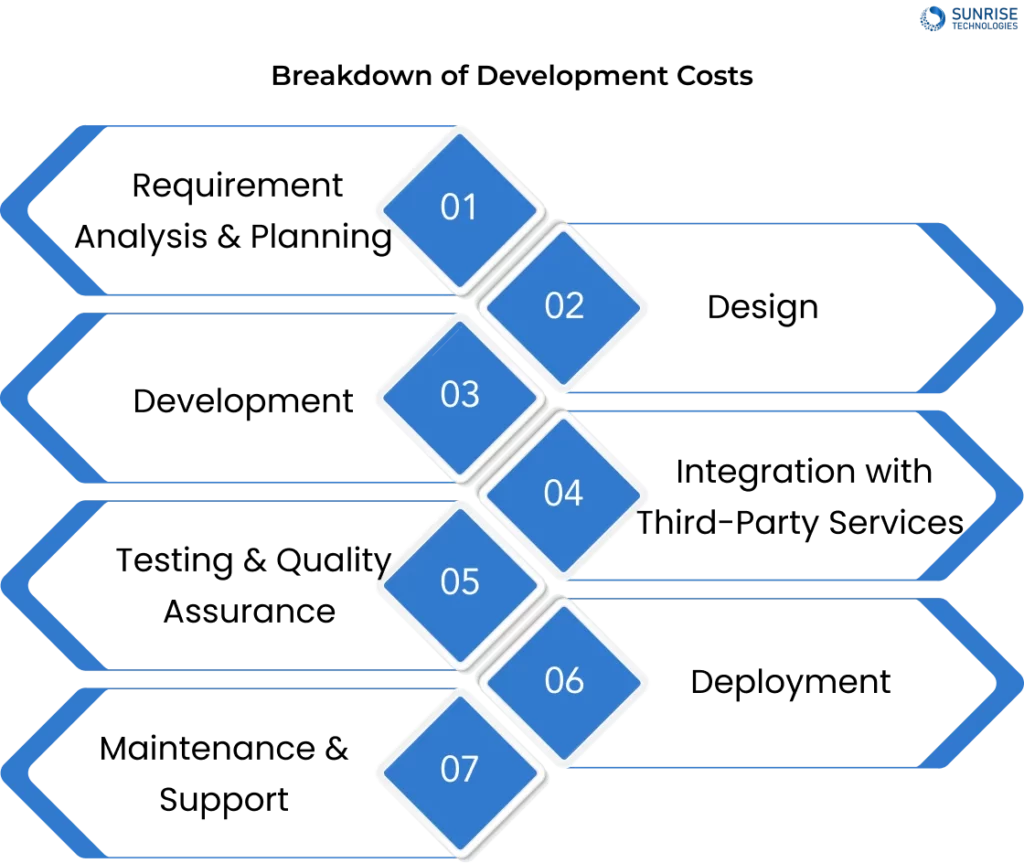
1. Requirement Analysis and Planning
- Cost: $2,000 - $5,000
- Activities Covered in this Phase: This phase involves gathering requirements from stakeholders, defining features, creating a project roadmap, and conducting initial planning sessions. It sets the foundation for the project by outlining goals, scope, and deliverables, ensuring alignment between the client's needs and the development team's capabilities.
2. Design
- UI/UX Design
- Cost: $3,000 - $8,000
- Activities Covered in this Phase: Designing user interfaces, user experience workflows, and creating prototypes to visualize the app's look and feel, ensuring a user-friendly and intuitive design.
- System Architecture Design
- Cost: $2,000 - $5,000
- Activities Covered in this Phase: Designing the overall system architecture, database schema, and selecting technology stacks to establish a robust and scalable foundation for development.
3. Development
- Frontend Development
- Cost: $10,000 - $20,000
- Activities Covered in this Phase: Building server-side logic, APIs, database integration, and ensuring secure data handling using technologies like Node.js, Python, or Java for a reliable and efficient backend system.
- Backend Development
- Cost: $15,000 - $30,000
- Activities Covered in this Phase: Developing the user interface using technologies like HTML, CSS, JavaScript, and front-end frameworks to create an engaging and responsive user experience.
4. Integration with Third-Party Services
- Cost: $5,000 - $10,000
- Activities Covered in this Phase: Integrating with third-party services such as electronic health records, payment gateways, and appointment scheduling systems to enhance functionality and connectivity.
5. Testing and Quality Assurance
- Cost: $5,000 - $15,000
- Activities Covered in this Phase: Conducting manual and automated testing to ensure the software is bug-free and meets all requirements, including functional, performance, security, and user acceptance testing.
6. Deployment
- Cost: $2,000 - $5,000
- Activities Covered in this Phase: Setting up the hosting environment, deploying the application to servers or cloud platforms, and ensuring scalability and security for a successful launch.
7. Maintenance and Support
- Cost: $2,000 - $5,000 per month
- Activities Covered in this Phase: Providing ongoing support, bug fixing, updates, and adding new features as required to ensure the app remains functional and up to date.
Discover real-world development costs and find the right plan for your clinic.

Strategies for Cutting App Development Expenses
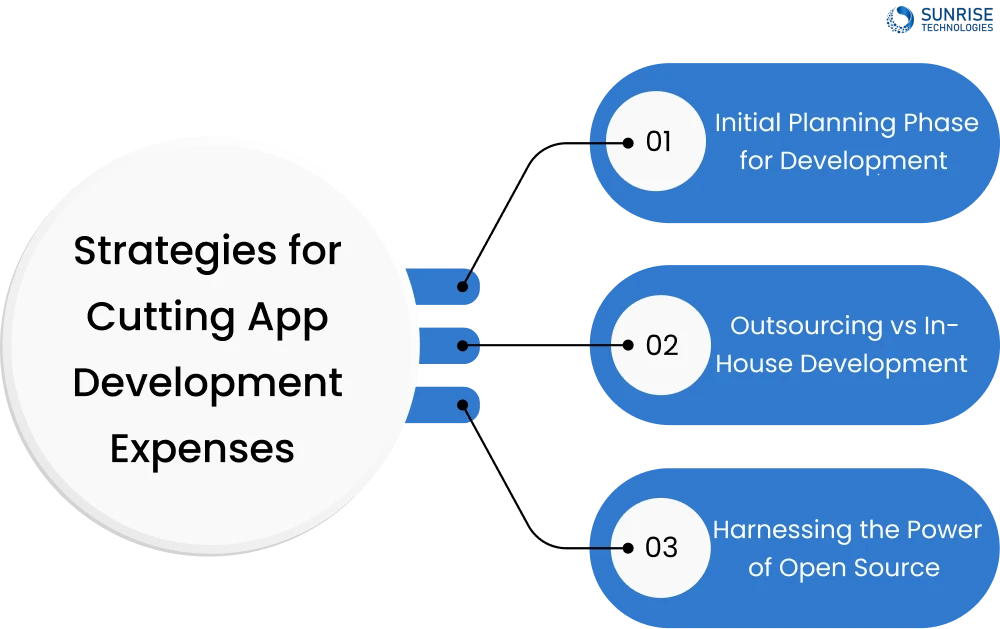
Initial Planning Phase for Development
Investing time and resources in thorough planning during the initial phase of development can significantly reduce expenses down the line. By clearly defining requirements, setting realistic goals, and creating a detailed roadmap, you can avoid costly changes and delays, ensuring efficient use of your budget.
Outsourcing vs In-house Development
Carefully evaluating the costs and benefits of outsourcing development versus building an in-house team is crucial. Outsourcing can provide access to specialized skills and lower labor costs, while in-house development offers more control and potentially faster turnaround times. Weigh the pros and cons to determine the most cost-effective approach for your project.
Harnessing the Power of Open Source
Leveraging open-source tools, frameworks, and libraries can significantly reduce development expenses. By utilizing free and community-supported resources, you can cut costs on licensing fees and accelerate development timelines. However, ensure that the open-source solutions align with your project requirements and that you have the necessary expertise to integrate and maintain them effectively.
Why Choose Sunrise Technologies Clinical Management Software?
Sunrise Technologies offers cutting-edge Clinical Management Software that provides numerous advantages for healthcare providers looking to streamline their operations and enhance patient care. By leveraging advanced features and a user-friendly interface, this software empowers clinics to optimize workflows, improve efficiency, and deliver better outcomes.
Advantages and Benefits of Our Clinical Management Software
- Sunrise Technologies' Clinical Management Software is its ability to simplify appointment scheduling. The software's efficient booking system reduces wait times, minimizes scheduling conflicts, and ensures a seamless experience for both patients and staff. This optimization of clinic workflow translates into improved patient satisfaction and increased productivity.
- Software's robust patient registration and tracking capabilities. By streamlining patient check-ins and maintaining accurate records, clinics can enhance data integrity, reduce errors, and provide personalized care. The software's electronic health records management features securely store and facilitates easy access to patient information, promoting data accuracy and facilitating seamless care coordination among healthcare providers.
- Sunrise Technologies' Clinical Management Software also offers a distinct advantage in terms of financial management. Its integrated billing and payment processing features simplify financial transactions, reduce errors, and ensure timely payments. This optimization of revenue cycle management enables clinics to maintain financial health and allocate resources more effectively.
- The software's laboratory and pharmacy management features provide an additional advantage by enhancing clinical workflows and improving treatment accuracy. By efficiently managing diagnostics and prescriptions, clinics can ensure effective management of these critical services, ultimately leading to better patient outcomes.
- Inventory management is another area where Sunrise Technologies' Clinical Management Software shines. By optimizing inventory levels, reducing waste, and streamlining supply chain management, clinics can minimize costs and ensure the availability of essential items for patient care.
Finally, the software’s reporting and analytics tools offer a distinct advantage by providing valuable insights into clinic performance, patient trends, and operational efficiency. These data-driven insights empower clinics to make informed decisions, enhance patient care quality, optimize workflows, and drive continuous improvement in their operations.

Learn about key cost drivers and build a solution within your budget.
The cost to develop clinic management software for small clinics and general practices is a crucial consideration, but it should not deter practices from embracing the benefits of such solutions. By carefully evaluating their needs, exploring cost-effective development options, and partnering with reliable software development companies like Sunrise Technologies, small clinics and general practices can unlock the full potential of clinic management software and enhance the quality of care they provide to their patients.
Sam is a chartered professional engineer with over 15 years of extensive experience in the software technology space. Over the years, Sam has held the position of Chief Technology Consultant for tech companies both in Australia and abroad before establishing his own software consulting firm in Sydney, Australia. In his current role, he manages a large team of developers and engineers across Australia and internationally, dedicated to delivering the best in software technology.
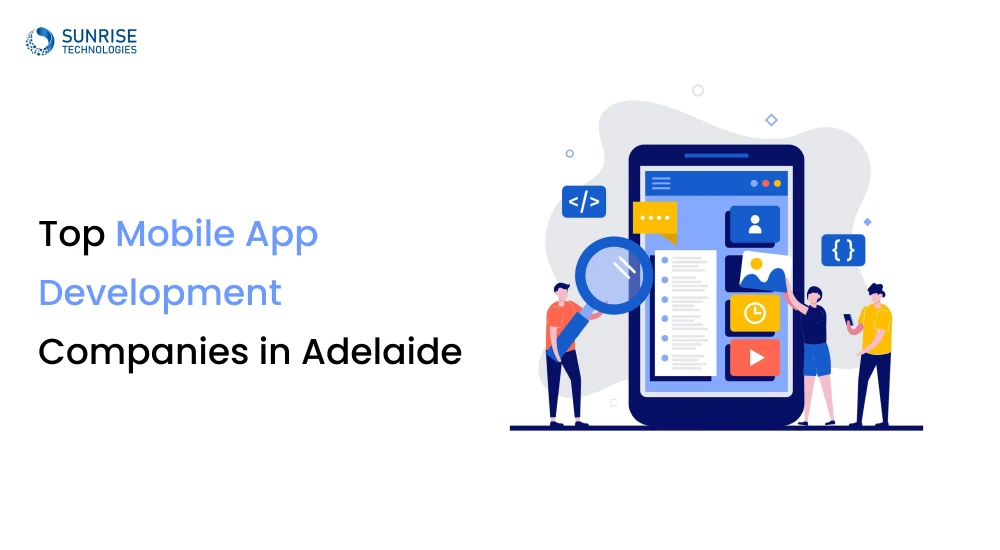
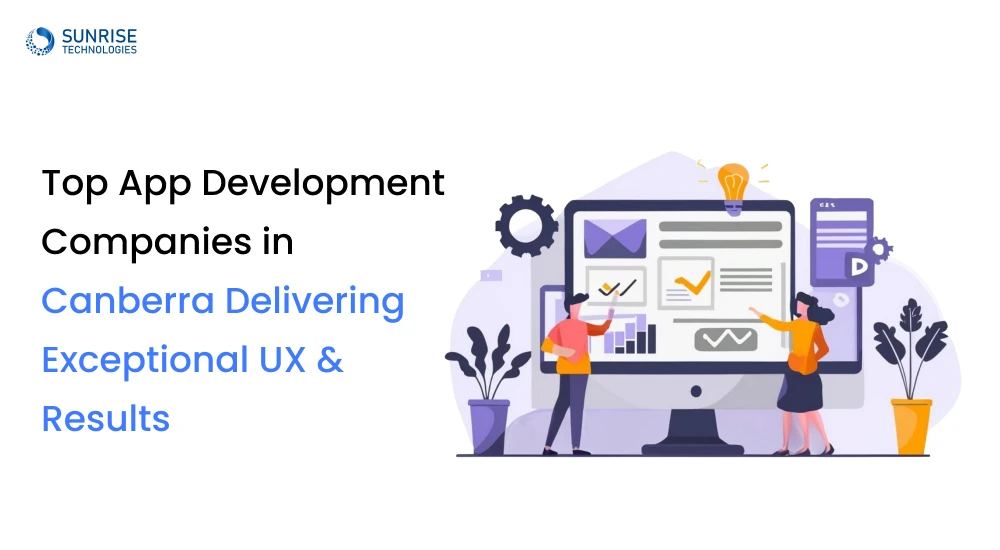
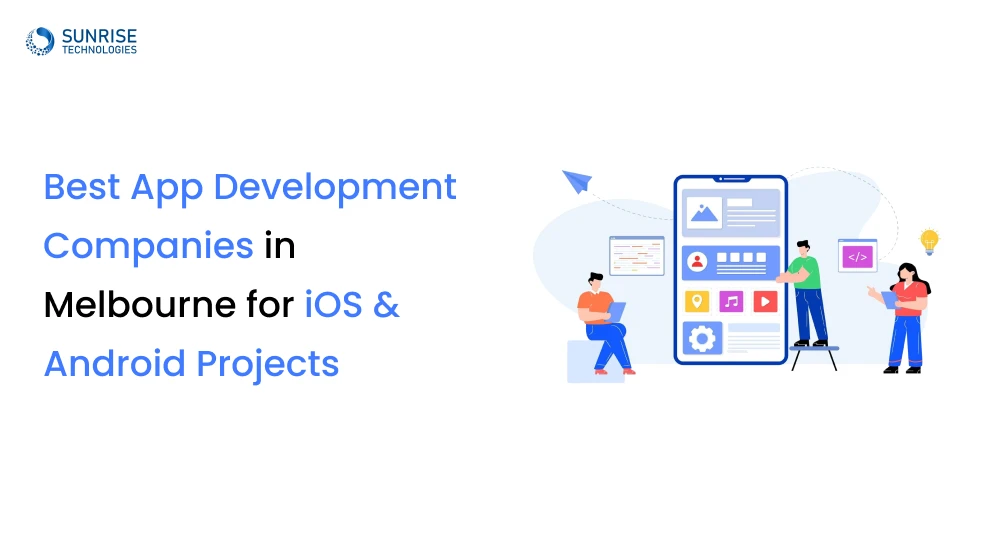
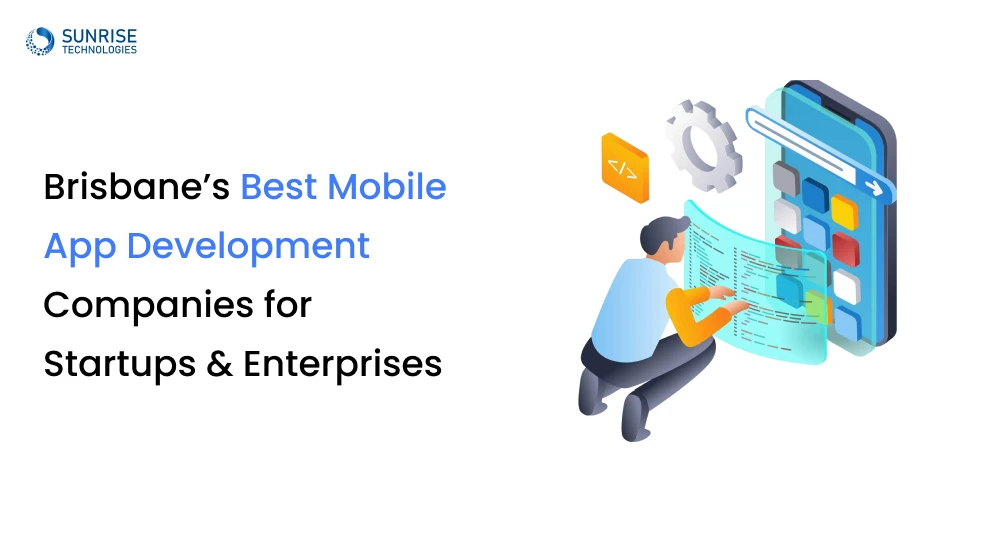
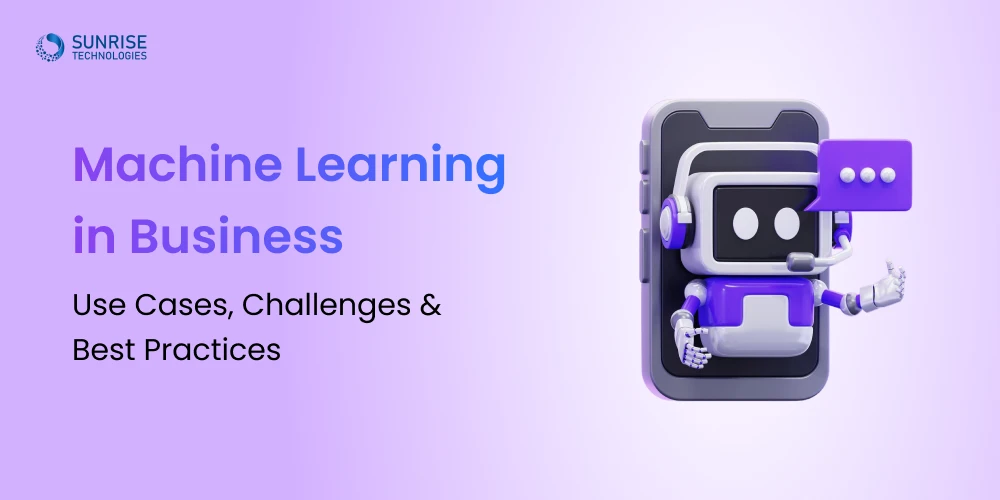

Cloud Based Project Management Platform
Read the challenges we faced and how we helped
View Case Study




